Best Ring doorbell: Which Ring Video Doorbell should you buy?
Ring's video doorbells offer night vision, motion detection, and two-way communication. But which one is right for you?
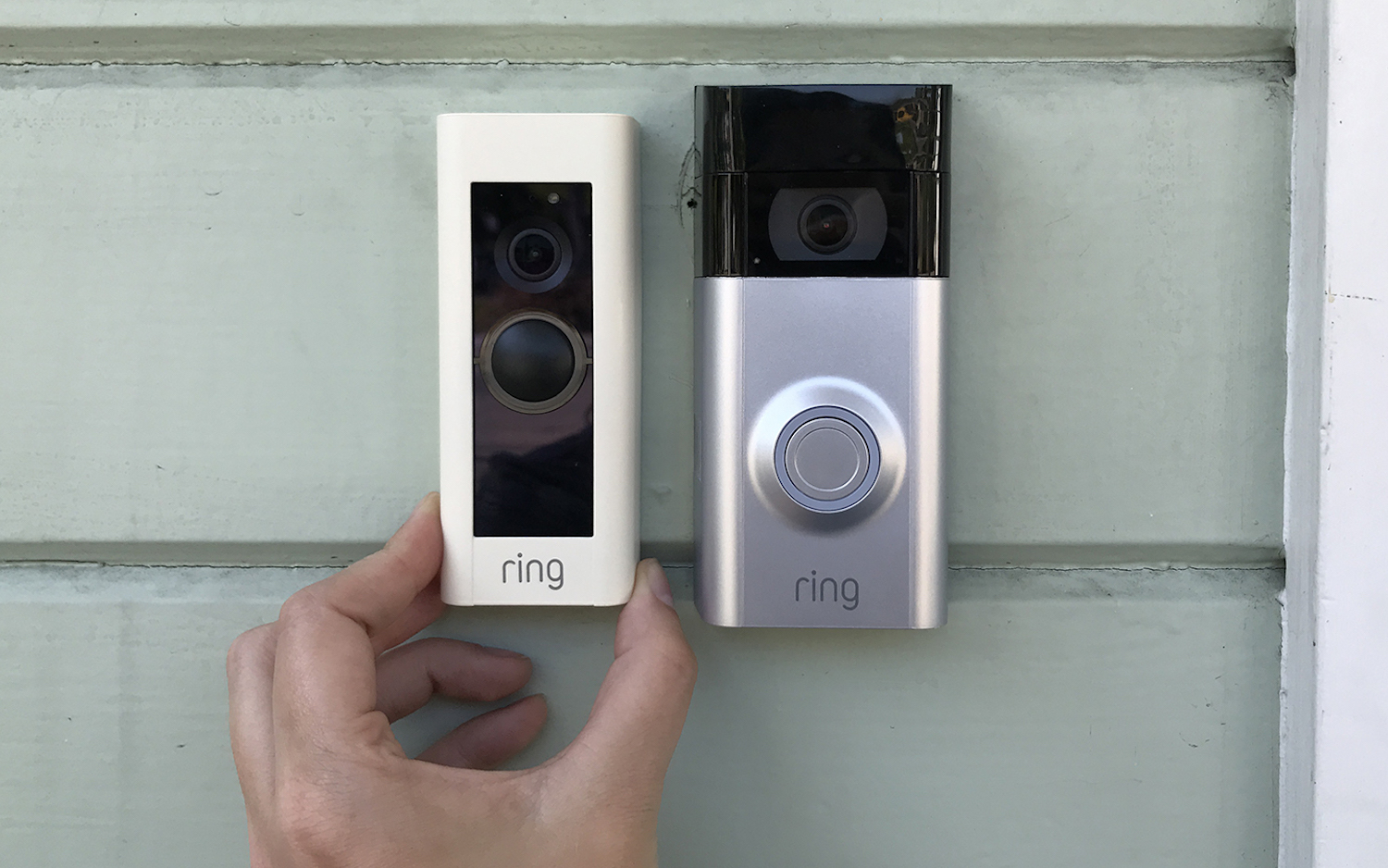
Ring video doorbells are among some of the best video doorbells for a variety of reasons: They deliver excellent image quality, are easy to install, and fit a variety of needs and door types.
Having reviewed all of Ring's video doorbells, we think the best for most is the Ring Battery Doorbell Plus. It can be hardwired or run off battery power alone, has head-to-toe video with package detection, and some other advanced features that can better track people on your property. If you're looking for something less expensive, the Ring Battery Doorbell offers the most value, as it has features like package detection and head-to-toe video, and costs less than $100. And, if you want the absolute best in video quality, the 4K Ring Wired Doorbell Pro (3rd gen) is the way to go.
Read on for a comprehensive comparison of all of Ring's video doorbells, so you can make the most informed buying decision possible. We've compared all devices to help you decide which one is best for you.
The quick list

An expansive view of your front porch, package detection, a removable battery and a good price make this the best Ring doorbell for most people.

This model also has head-to-toe video and package detection and can be wired or run on battery power alone. And, it's less than $100. However, the battery is non-removable.
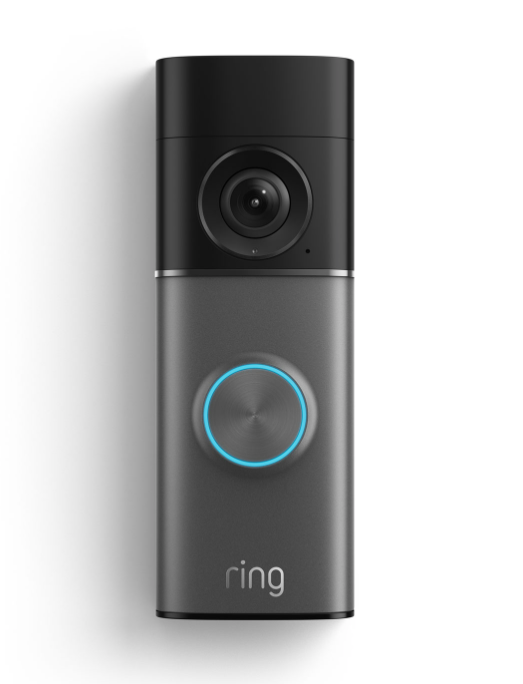
Ring's first 4K doorbell delivers exceptional video quality, day or night, and thanks to Alexa+, it's a lot smarter, too.

This wired-only doorbell is nice and compact, and was the first to offer both head-to-toe video as well as package detection. Plus, you also get a radar feature that helps you identify people.

The Battery Doorbell Pro has everything we like about the Battery Doorbell Plus, but includes radar tracking and a bird's-eye view to better see where people are on your property.

The cheapest Ring video doorbell, this model is wired-only and has a narrower field of view. And, it doesn't work with your existing chime, so you'll need to buy extra gear.
In addition to the models listed on this page, Ring has also released the Wired Doorbell Plus ($179 at Ring), which has a 2K camera and a slimmer design, similar to the 4K Ring Wired Doorbell Pro (3rd gen). Stay tuned for our review.
The best Ring video doorbells you can buy today
Best overall
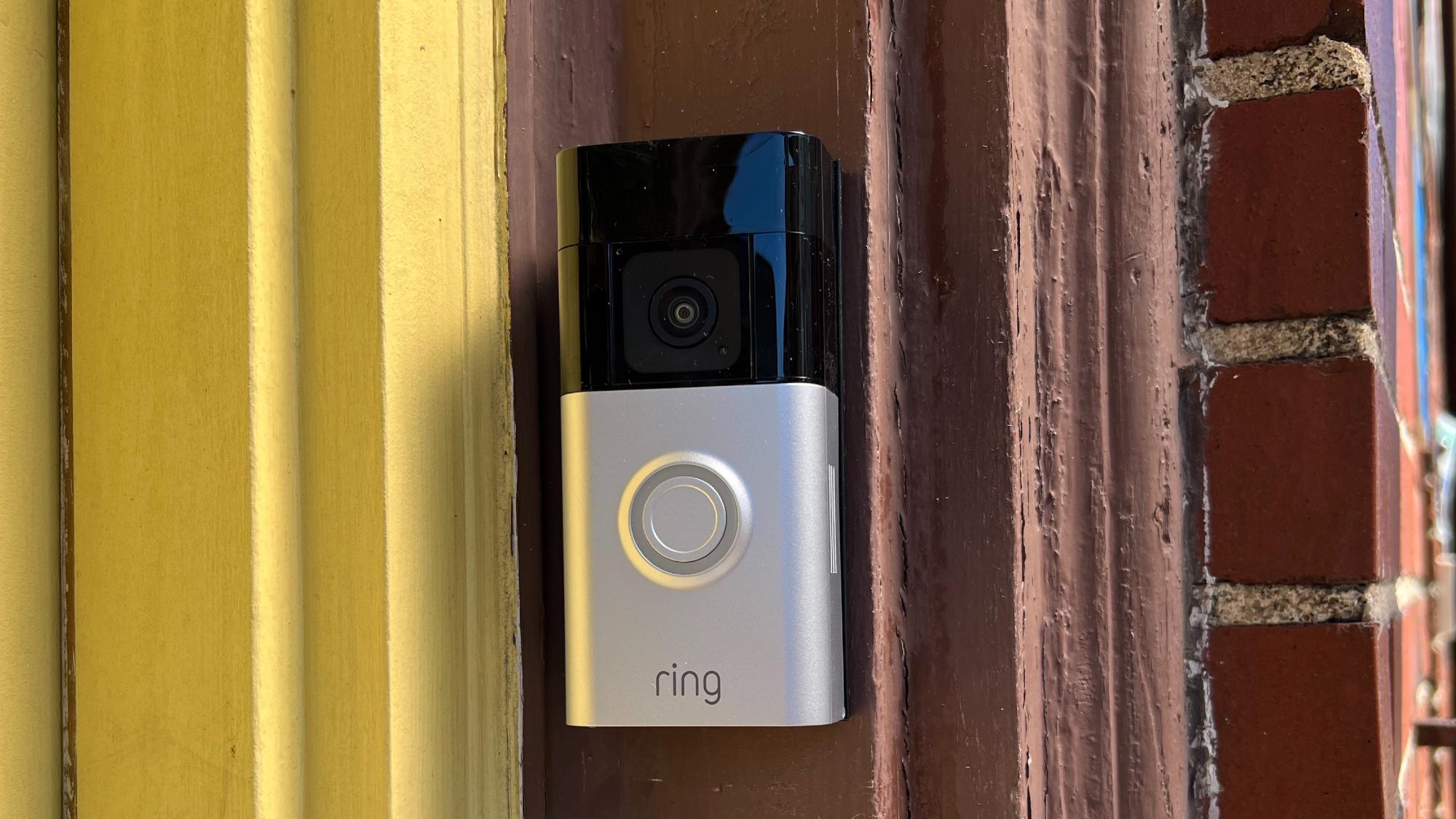

Specifications
Reasons to buy
Reasons to avoid
The Ring Battery Doorbell Plus takes the best features from the company's other products and puts them all into one device. Like the Ring Wired Doorbell Pro, its camera has a 150 x 150-degree field of view, so you can see more of what's happening around your front door. It has package detection too, so you'll know when a delivery has been dropped off.
Unlike many other Ring video doorbells, the Plus' battery can be removed, so there's little downtime when you need to recharge it, and the faceplate can also be swapped out to match your decor, or for a seasonal boost. And, like Ring's other video doorbells, it's also easy to install.
The Ring Battery Doorbell Pro, which also has a removable battery, offers a few upgraded features such as 3D motion tracking and a birds-eye view of where it spots people on your property. It's a great video doorbell, but we think most people will be able to get by with the Plus model.
Read our full Ring Battery Doorbell Plus review.
Get instant access to breaking news, the hottest reviews, great deals and helpful tips.
Best value
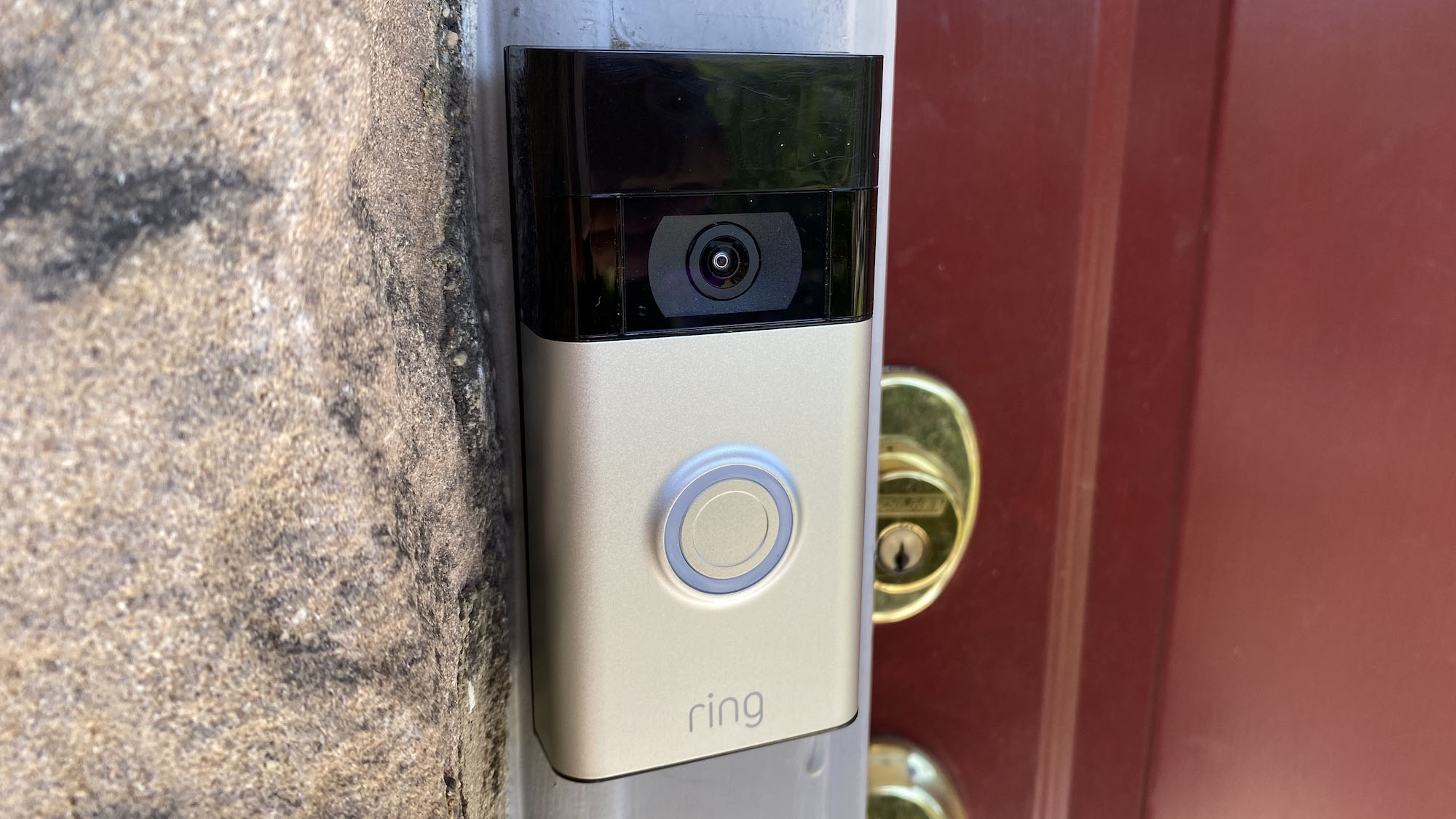

Specifications
Reasons to buy
Reasons to avoid
We think the Ring Battery Doorbell is the best Ring Doorbell value. It costs less than $100, yet delivers the features we liked the most in pricier Ring doorbells — namely, package detection and head-to-toe video, so you can see when things have been left at your door.
The design of the Ring Battery Doorbell is essentially unchanged from the Ring Video Doorbell (2nd gen), which unfortunately means that the battery is built-in, and not removable, as you'll find on the Ring Battery Doorbell Plus and Pro. That means you'll have to remove the entire doorbell from your door when you need to recharge it. You can get around this somewhat if you attach a solar panel, but it is still a consideration.
This model costs about twice as much as the Ring Wired Doorbell, but we still think it's the better value, as this model will work with your existing doorbell chime, so you don't need to buy an extra piece of equipment, and it has a battery backup, so you won't be left in the lurch if the power goes out.
Best video quality

Specifications
Reasons to buy
Reasons to avoid
The third-generation Ring Wired Video Doorbell Pro is the first from the company to feature 4K resolution, which in and of itself is great, but there's more here than just a better camera.
For starters, we like the new, slimmer design of Ring's video doorbell — but that means it lacks a battery backup if your power goes out. However, it still has swappable faceplates, so you can find the color that best matches your house.
As for the camera itself: In addition to the higher resolution, it also has the widest coverage of Ring's doorbells — both 140º horizontally and vertically — so you get a very expansive view of the front of your house. The images it captured were by far the best we've seen from a Ring camera, day or night. Its Retinal View camera was much better at accounting for a wide dynamic range, such as bright lights against a dark background. It was either because of this, or the camera's smarts — or a combination of both — that resulted in far fewer false alerts than we'd seen with our previous Ring doorbell.
The Wired Video Doorbell Pro (3rd gen) can also take advantage of some Alexa+ features, like being able to come up with on-the-fly responses to people who approach your door. A Familiar Faces feature also lets it recognize friends and family, to give you even more insight into who's at your door.
While it's the most expensive of Ring's video doorbells, this model does stand out for all the right ways.
Read our full Ring Wired Video Doorbell Pro (3rd gen) review.
Best wired video doorbell value
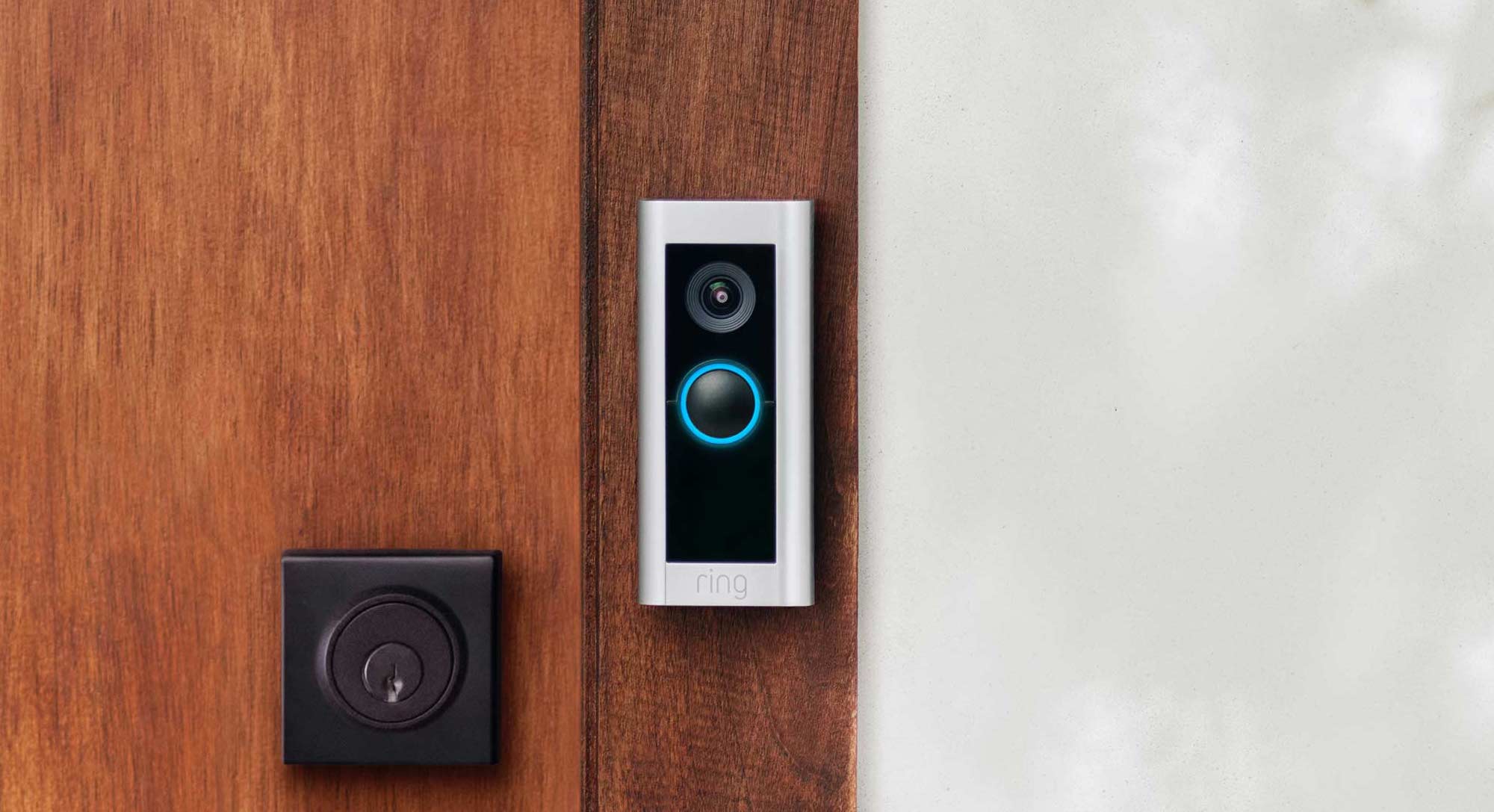
Specifications
Reasons to buy
Reasons to avoid
The Ring Wired Doorbell Pro (2nd gen) was the first from the company that has a square aspect ratio, which means the video is as tall as it is wide. What that means is that it can show much more of your front stoop than other Ring doorbells — so you're more likely to see when a package has been dropped off. Better yet, Ring added package detection, so you know when something arrives. It also has customizable motion zones and a "radar" feature that helps cut down on unwanted notifications.
The Ring Wired Doorbell Pro (2nd gen) delivered excellent video quality, was very responsive, and wasn't too hard to install. Just know that it's not battery-operated, and you'll also need to subscribe to a Ring Protect plan (starting at $4/month or $40/year) if you want to get the most out of the video doorbell.
This model has now been supplanted by the Wired Video Doorbell Pro (3rd) gen, which offers 4K video, which delivers a much sharper quality. But, the 2nd-gen model, while on its way out, will give you a good value for the price.
Read our full Ring Wired Doorbell Pro review.
Best wireless doorbell
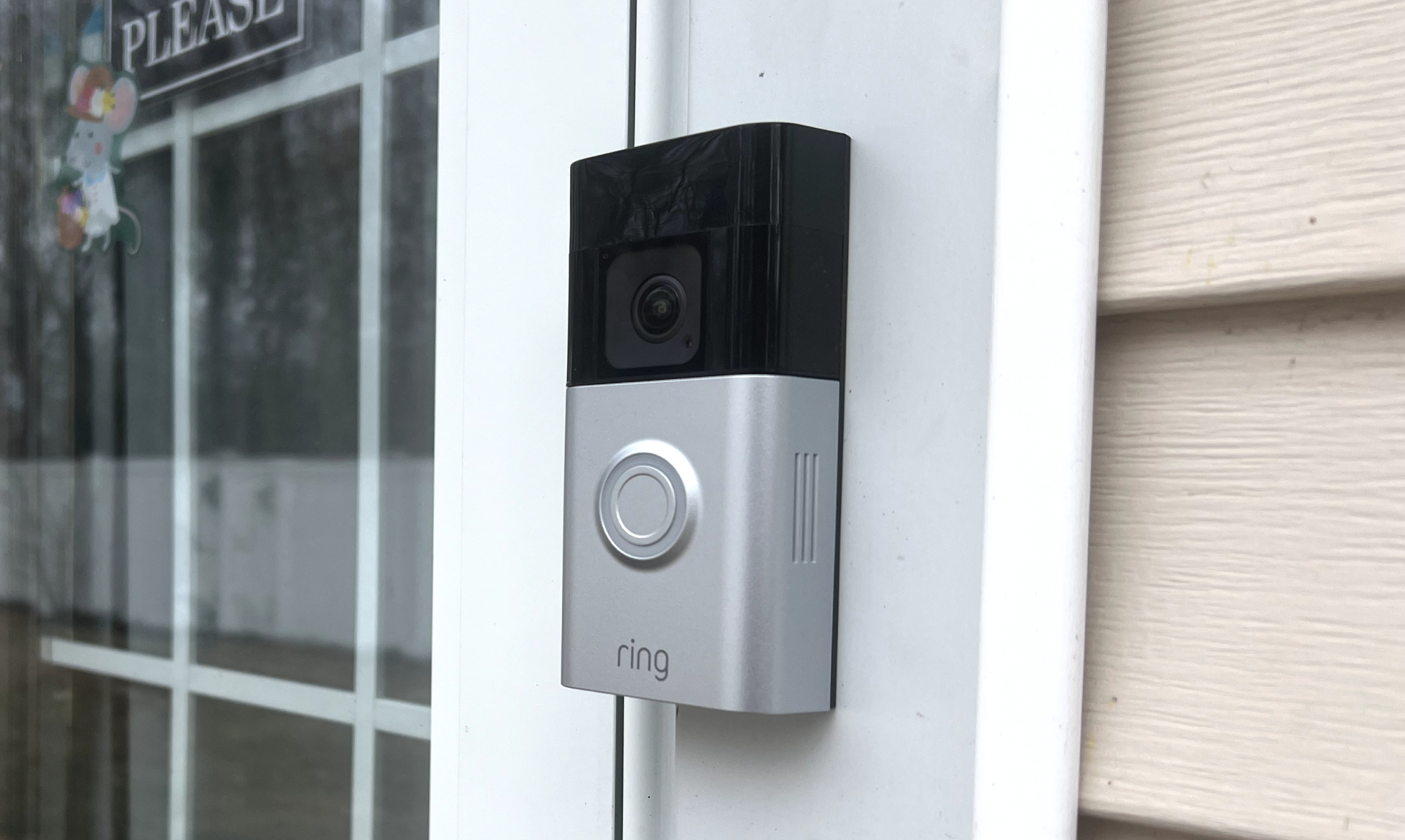
Specifications
Reasons to buy
Reasons to avoid
The Ring Battery Doorbell Pro has everything we liked about the Ring Battery Doorbell Plus, but adds a few upgraded features such as 3D motion tracking and a birds-eye view of where it spots people on your property. They're helpful if you have a view from your front that's partially obscured, so you can get a map view of where someone was walking in front of your house. They're certainly helpful features, but won't be necessary for most.
Similar to the Battery Doorbell Plus and the Ring Wired Doorbell Pro, the Pro's 1080p camera has a 150 x 150-degree field of view, which provides a nearly head-to-toe view of your front stoop. And, its battery can be removed to recharge the device, so you don't have to take the whole unit off the wall.
The Pro also comes with package detection, but this feature — along with the ability to save recordings — will set you back $4 a month, as is the case with any Ring camera or doorbell.
Read our full Ring Battery Doorbell Pro review.
Best budget
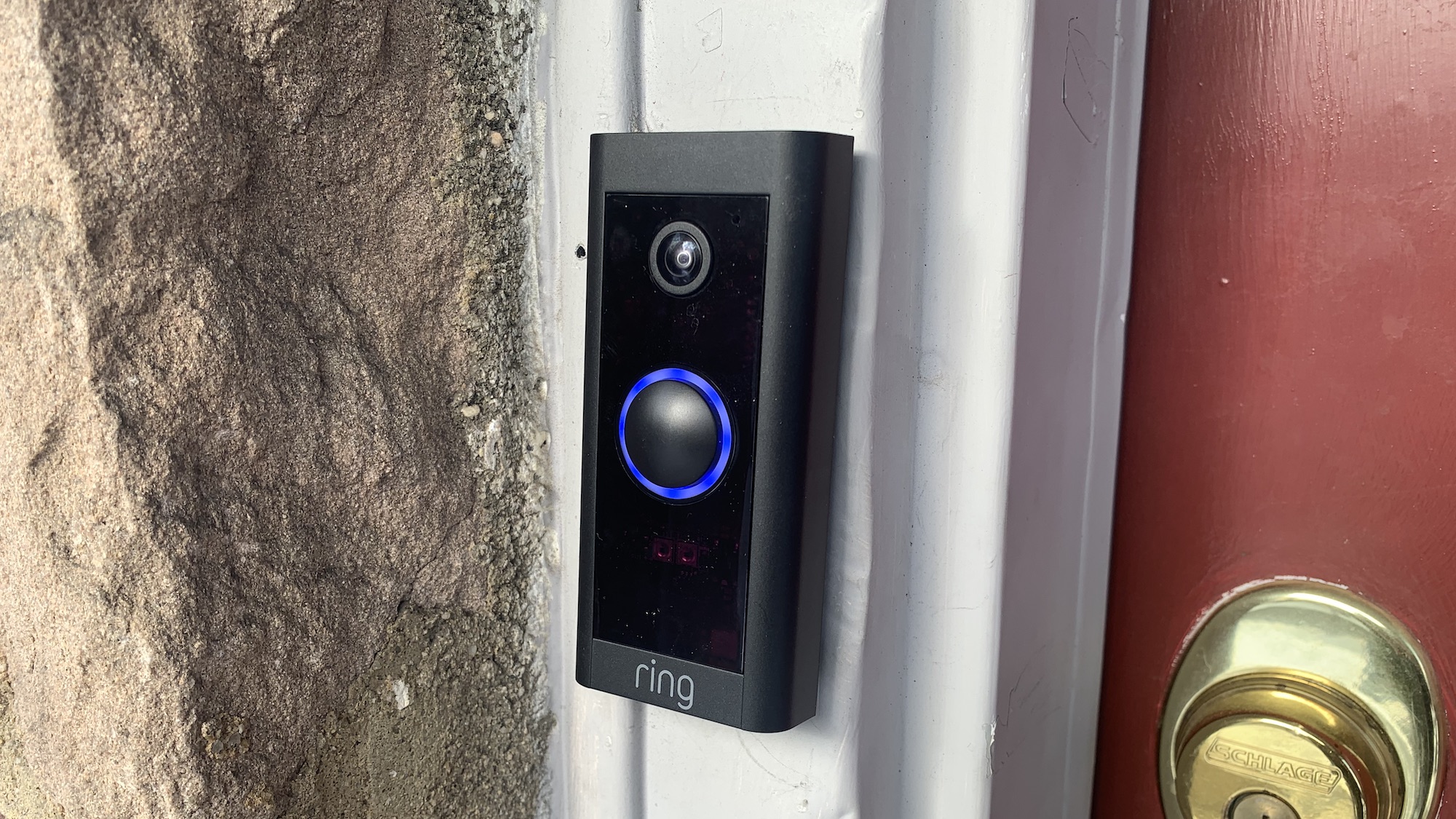
Specifications
Reasons to buy
Reasons to avoid
The low price of the Ring Video Doorbell Wired — just $49 usually — is very tempting for those looking for a budget video doorbell from a reputable brand. However, there are a few caveats that will make the total cost a bit higher. That's because this video doorbell does not work with your existing doorbell chime, so you'll need to tack on an extra $20 or so to purchase a Ring Chime if you want to hear the familiar ding-dong in your home. (You can also use an Amazon Echo Dot or some other Alexa-enabled smart speaker for this purpose, too)
Otherwise, the Ring Video Doorbell Wired works well, produces a quality image, and has a slim profile. Just be mindful that with its low price come several restrictions.
Read our full Ring Video Doorbell Wired review
Ring Video Doorbells: Specs compared
| Row 0 - Cell 0 | Ring Wired Doorbell Pro (3rd gen) | Ring Wired Doorbell Pro (2nd gen | Ring Battery Doorbell Plus | Ring Battery Doorbell | Ring Video Doorbell Wired |
Price | $249 | $179 | $149 | $99 | $49 |
Size | 1.9 x 1 x 5.4 in | 4 x 1.8 x 0.88 in | 5.1 x 2.4 x 1.1 in | 4.98 x 2.4 x 1.1 in | 3.9 x 1.8 x 0.8 in |
Resolution | 4K | 1536 x 1536 | 1536 x 1536 | 1536 x 1536 | 1080p |
Wiring | hardwired | Hardwired | Battery or hardwired | Battery or hardwired | Hardwired |
Field of View | 140º x 140º | 150º x 150º | 150º x 150º | 150º x 150º | 155º horiz, 90º vert |
Wi-Fi | 2.4, 5GHz | 2.4, 5GHz | 2.4 GHz | 2.4Ghz | 2.4GHz |
Pre-roll | Yes | Yes | No | No | Yes |
Removable battery | n/a | n/a | Yes | No | No |
Package detection | Yes | Yes | Yes | Yes | No |
The best time to buy a Ring Video Doorbell
If you're in the market for a Ring Video doorbell, you're going to find the best deals at two times during the year: Prime Day, which typically happens in mid-July, and Black Friday and Cyber Monday, which takes place right after Thanksgiving.
During those times, you're likely to find the best Ring Video doorbell deals, as Amazon either discounts the doorbells themselves, or bundles them with Ring security cameras or Amazon smart speakers and displays.
How to pick the best Ring video doorbell
Design
All of Ring's video doorbells are relatively similar in design; they're all black and gray, with a camera at the top and an illuminated button beneath. The Ring Doorbell Wired, the Doorbell Pro, and the Ring Wired Doorbell Pro are much smaller and thinner (as they don't need to accommodate a battery).
The Doorbell Plus and Pro both come with interchangeable face plates as well as angled wedges, making it easier to match your home's decor, as well as angle the camera towards your door. You must purchase these accessories separately if you buy the Ring Battery Doorbell.
Additionally, the Ring Battery Plus has a removable battery, so if you're running them on battery power alone, you can swap out the batteries and not have any downtime. The Ring Battery Doorbell has a nonremovable battery, so if you want to recharge it, you have to take the doorbell off your door.

Video
Apart from whether you want a wired or battery-powered model, the next big decision is how much of your front porch you want to see.
Older models had a horizontal field of view of 155 to 160 degrees, and a vertical field of view of 90 degrees. Like a picture taken with your camera, you're able to see a lot more horizontally than vertically. However, these are mostly phased out, the budget Ring Video Doorbell Wired being the only one left.
Newer models have a squarer field of view both horizontally and vertically. This means that while the image isn't as wide as Ring's older video doorbells, it's taller, so you can see closer to the front stoop — where packages are most likely to be dropped.
Motion Detection
All of Ring's video doorbells have motion detection; when the device detects movement, it sends an alert to your smartphone. You can customize how far the sensors stretch. If you have the Wired or the Ring Wired Doorbell Pro, you can draw the zones yourself.
Package Detection
All of Ring's current lineup of video doorbells have package detection, but you'll need a Ring subscription to use this feature.
Wi-Fi connectivity
While all of Ring's video doorbells work over Wi-Fi, the Wired Doorbell Plus, Wired Doorbell Pro and Battery Doorbell Pro support 5.0GHz connections, which allow for faster and more reliable connectivity.
In most other features, the doorbells are on a par with each other. They all offer two-way communication, which you can use to greet your guests, or scare off burglars, and infrared night vision. They all work with Alexa, SmartThings and IFTTT, and you can watch the doorbells' footage and communicate with guests using the Echo Show, as well as all generations of the Fire TV. Unfortunately, Ring does not work with Google Assistant/Home devices.
MORE: Which Security Camera Has the Best Storage Plan?
As a bonus, you can connect them with a number of smart locks from Kevo, Yale, and August. This will allow you to unlock your door — and let your guest in — directly from the Ring app.
Ring video doorbell: Installation
Of all of Ring's video doorbells, the Ring Peephole Cam sports the simplest design and simplest setup. The device consists of two pieces: one that sits on the outside of the door, and one that you look through from the inside, connected through the peephole. It doesn't require any tools or permanent modifications, and should take only a few minutes.
MORE: How to Install the Ring Video Doorbell
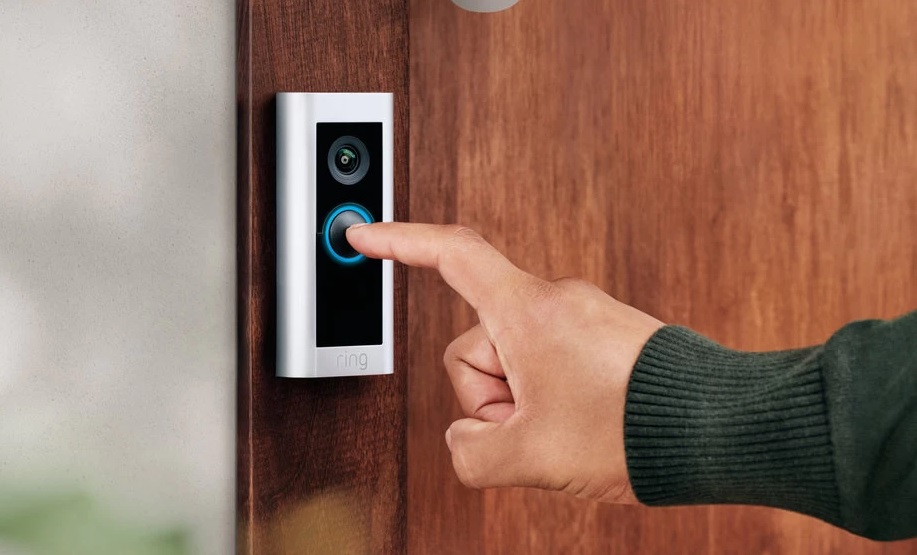
The other three devices are a bit more complicated to install, but you can (in theory) set them all up yourself.
As their names suggest, the Ring Battery Doorbell and Ring Battery Doorbell Plus can run off battery power alone, meaning they'll still work when the electricity's out — provided your internet connection is still up. This also means that you can mount them anywhere, and don't have to worry about connecting them to an existing doorbell's wires.
The Wired Doorbell Pro, Plus, and the Ring Doorbell Wired are slightly more complicated, as they require hardwiring. In most cases, you should be able to power then using the wires that powered your old doorbell. However, you'll need to upgrade your transformer if your old doorbell isn't getting 16-24 volts of power. You'll also need to install a Pro Power kit (basically a small battery included with the device) in your home’s chime box.

More from Tom's Guide

Michael A. Prospero is the U.S. Editor-in-Chief for Tom’s Guide. He oversees all evergreen content and oversees the Homes, Smart Home, and Fitness/Wearables categories for the site. In his spare time, he also tests out the latest drones, electric scooters, and smart home gadgets, such as video doorbells. Before his tenure at Tom's Guide, he was the Reviews Editor for Laptop Magazine, a reporter at Fast Company, the Times of Trenton, and, many eons back, an intern at George magazine. He received his undergraduate degree from Boston College, where he worked on the campus newspaper The Heights, and then attended the Columbia University school of Journalism. When he’s not testing out the latest running watch, electric scooter, or skiing or training for a marathon, he’s probably using the latest sous vide machine, smoker, or pizza oven, to the delight — or chagrin — of his family.
You must confirm your public display name before commenting
Please logout and then login again, you will then be prompted to enter your display name.
 Club Benefits
Club Benefits





